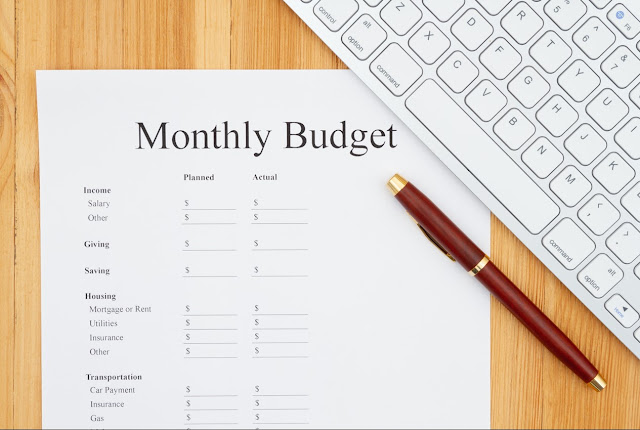If your employer offers a 401(k), investing in either a standard 401(k) or a Roth 401(k) is a wise choice when preparing for retirement.
They may be a better fit. Every variety has advantages and disadvantages of its own. Although the primary and most well-known difference between a traditional 401(k) and a Roth
- 401(k) is the time at which your money is taxed.
- Your employer's plans, employer matching contributions, state of residence, and savings capacity are also factors.
Everyone has better options; you must decide based on your unique situation.
- A Roth 401(k) is among the two primary categories of 401(k) plans, and it provides considerable tax advantages to employees who save for retirement.
- The regular 401(k) is another major plan that offers substantial but different tax advantages for retirement savings.
Here's everything you need to understand about Roth 401(k)s so you can decide if they're good for you.
What’s a Roth 401(k)?
A Roth 401(k) is a kind of employer-sponsored retirement savings plan allowing employees to contribute after deducting taxes. When that employee retires, they will be able to take tax-free withdrawals.
In 2006, the Roth 401(k) was introduced, combining characteristics from the standard 401(k) and the Roth IRA. Like a traditional 401(k), you can use a Roth account to take the benefits of an employer match on the contributions if your employer offers one.
Furthermore, the Roth feature of a Roth 401(k) allows you to make tax-free withdrawals.
The income tax is paid directly on the employee's money from every paycheck and deposited into the retirement account. Withdrawals from the retirement fund would be tax-free after the employee retires.
How does it work?
- The person’s age determines a Roth 401(k) contribution limit.
- Individual contribution limits in 2020 and 2021 are $19,500 annually. Individuals aged 50 and up are eligible for a catch-up payment of $6,500.
- If your employer matches your contributions, you may contribute to a Roth 401(k). A Roth 401(k) deposits matched funds into a tax-deferred account.
- The Roth 401(k) account should be held for a minimum of 5 years.
- The account holder should only make withdrawals due to a disability if the account owner reaches the age of 59½ or after the account holder’s death.
- Unless the employee is still working at the company holding the 401(k) and is not a 5% (or more) owner of the company sponsoring the plan, distributions are needed for employees who are at least 72 years old (70½ before January 1, 2020).
- You can make tax-free withdrawals from a Roth 401(k) after retirement. Non-qualified withdrawals from a Roth 401(k) are pro-rated based on your contributions and income.
Additionally, you may be charged the 10% early withdrawal penalty on funds classified as gross income.
To avoid a penalty, you must begin collecting the required minimum distributions (RMDs) after you reach the age of 72 (70½ before January 1 or earlier). When you retire, you can avoid this obligation by rolling your Roth 401(k) into a Roth IRA, which does not require RMDs. This way, your funds can keep growing tax-free, and your heirs won’t have to pay taxes on distributions if you pass your IRA over to them.
Employer-sponsored Roth 401(k) plans are the only way to invest in a Roth 401(k). If your company only offers a regular 401(k) with matching contributions, you’ll be wasting money if you don’t participate.
What are the benefits of a Roth 401(k)?
- Employees in a low tax bracket who intend to shift into a higher one upon retirement may benefit the most from a Roth 401(k).
- Currently, contributions will be taxed at a reduced rate, while retirement withdrawals will be tax-free.
- Tax-free distribution is the most significant benefit. The money in the fund will be tax-free throughout retirement, regardless of how much it grows over time.
- There is a minor disadvantage to this retirement plan. Since contributions to a traditional 401(k) are not taxed immediately, they have a lower impact on your take-home pay and maximize your tax break for the year.
How are they different from traditional 401(k)s?
A Roth 401(k) may be a superior option when considering future advantages. You need to pay income tax on your contributions in current-dollar to build a tax-free retirement nest egg.
Significantly, the contributions and the income will be tax-free over time. On the other hand, a regular 401(k) account requires you to pay income tax on the total amount you withdraw.
However, the Roth 401(k) takes a bigger bite out of your annual income. If you’re nearing retirement, the immediate tax savings may be more appealing than the chance of future tax-free withdrawals. If you plan to be in a lower tax bracket after retirement, the typical tax advantage of a 401(k) may be more beneficial.
Pre-tax contributions are made in a standard 401(k), which lowers your current adjusted gross income.
Contributions to a Roth 401(K) are made after taxes without impacting the current AGI. Employer matching contributions are taxed when distributed and must be placed in a pre-tax account.
When would someone choose a Roth 401(k) over other options?
The advantages of a Roth 401k above other options cannot be overlooked. The most appealing factors for selecting this option are the financial benefits of reduced tax deductions and tax-free withdrawals.
Therefore, those with access to 401(k)s may benefit from a 401(k) and a personal IRA. Before creating a personal IRA, maximizing your 401(k) contributions will be advantageous to fully benefit from the 401(k) benefits mentioned above.
For instance, if your employer matches any 401(k) contributions you make, every $1 you put into the plan is now worth $2. Note that employer contributions are stored in a separate account and that any gains are fully taxable upon withdrawal.
The ability to invest in things that are not available in your 401(k) plan is one reason you might want to have an IRA before maximizing your 401(k) plan.
Most 401(k) plans only let you choose from a set of mutual funds selected by your employer.
Your investment scope may be widened by having an IRA to include individual equities or unconventional assets like real estate or cryptocurrencies.
The choice between a Roth and a traditional account hinges on your projected tax rate in retirement compared to your current speed and your requirement for current income. The conventional is preferred since it is often believed that your tax bracket will be lower after retirement.
Since it might be challenging to anticipate your tax rate decades in the future, most people base their choice between a Roth and a standard retirement account on their ability to contribute a certain amount from their current income.
A standard 401(k) plan will require less of your income to be maximized than a Roth 401(k), as contributions are made pre-tax (k). You can’t overlook the emotional agony of investing in alternative options.
Imagine reaching retirement age and discovering your $2 million nest egg has been reduced to $1,600,000 after the tax deduction! You’ll miss $400,000 in retirement, far more than $250 in a paycheck. You’d rather pay taxes now.
You probably wouldn’t care about the amount you’re saving in taxes if you put 15% of every paycheck into your Roth 401(k). You’ll be delighted to notice that you don’t owe the government a single penny from your hard-earned savings when you retire.
Conclusion
Retirement savings can help you avoid debt during retirement. People in retirement use credit cards to mitigate emergencies and welcome credit card debt into retirement.
If you have enough money saved in your retirement account, you can use the money and get a tax benefit. The important considerations are how you wish to deposit and withdraw money into the account.
Finally, keep in mind that, provided your plan permits, you can split the difference and contribute to both accounts, switching back and forth during your career or even throughout the year. Your tax situation in retirement will be diversified if you use both accounts, which is always positive. Let's start by investing money today!
Author Bio: Attorney Loretta Kilday has more than 36 years of litigation and transactional experience, specializing in business, collection, and family law. She frequently writes on various financial and legal matters. She is a graduate of DePaul University with a Juris Doctor degree and a spokesperson for Debt Consolidation Care (DebtCC) online debt relief forum. Please connect with her on LinkedIn for further information.
 Ready to take the plunge into investing? Stock investments can be intimidating, but anyone can become a savvy investor with the right guidance.
Ready to take the plunge into investing? Stock investments can be intimidating, but anyone can become a savvy investor with the right guidance. 












.jpg)
